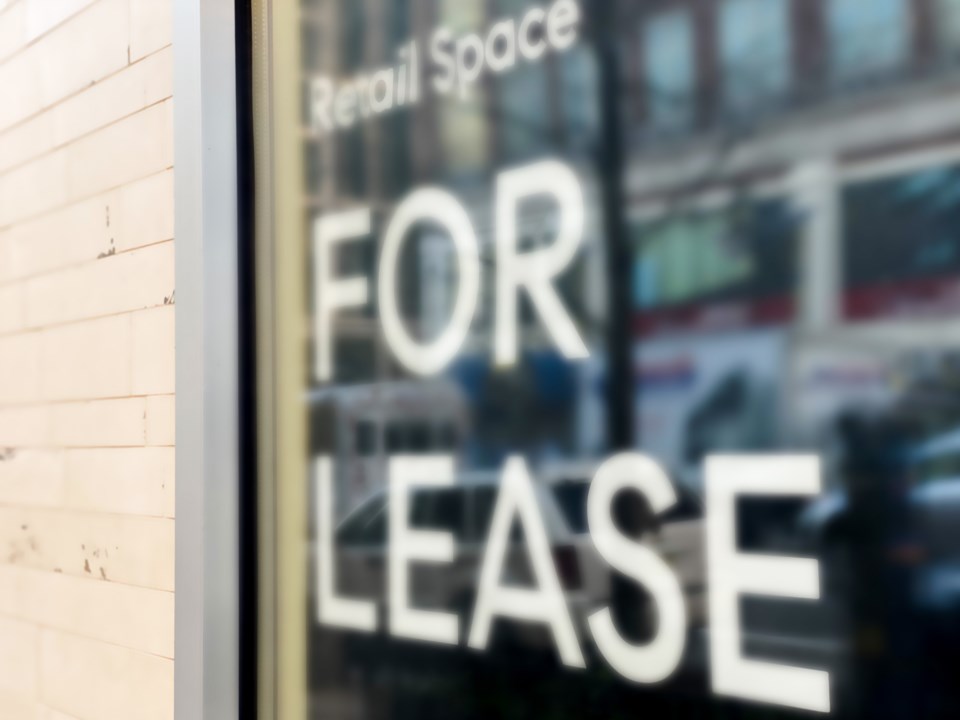Alexandra Road, aka "Food Street,” is well known in Richmond -- and beyond.
It’s particularly popular with students and people in the Chinese-speaking community who make a night of it, getting dinner, grabbing dessert and singing at a karaoke bar.
But despite its popularity, some businesses along Food Street are closing.
Tian Shi Fu, a busy restaurant that specializes in spicy Asian food, is one example.
It recently abandoned its Alexandra Road store and relocated to a smaller venue near the Brighouse Canada Line station.
The reason for the move was a massive rent increase, said William Tse, director of the Richmond-based BC Asian Restaurant Café Owners Association.
"The owner told me that the monthly rent almost doubled when he tried to renew the lease - increasing from roughly $20,000 per month to $40,000 each month," Tse explained.
"The ongoing pandemic, combined with inflation, already has many small business owners in limbo. Then, when they tried to catch a breath, the rising rental costs are like the straw that broke the camel's back," Tse added.
Richmond business consultant, Ruskin Chiang, said he wasn't surprised to learn that yet another local eatery had to relocate to survive.
"I’ve heard so many stories like this over the years. Some old, family-owned restaurants within the Richmond Centre area have had to downsize or shut down permanently," said Chiang, who’s been running a restaurant consulting firm for more than ten years.
Business owners have little recourse when it comes to huge rent hikes, Chiang added.
Most businesses sign a lease for about five years, during which time the rent is controlled, but once the lease expires the landlord can raise it to whatever they think the market will bear, explained Chiang.
When it comes to restaurants, this often puts more bargaining power in the hands of the landlord, he noted.
"That's because most barbeque or hotpot restaurant owners have spent over $700,000 on renovations, purchasing expensive kitchen equipment, such as commercial kitchen exhaust fans, which normally cost $10,000 each.
"They aren't allowed to move equipment away since all installments are attached to the property. And if they try to detach them, small damage to the property could make owners go bankrupt. So, they can’t afford to move," said Chiang.
Clay Adams, the city's spokesperson, said commercial leases are an agreement between the tenant and the landlord, and are governed by the BC Commercial Tenancy Act and contract law.
"Unlike the Residential Tenancy Act, there are no rules around rent increases, maximum levels, etc," said Adams, adding that municipalities do not have jurisdiction or authority over commercial tenancy agreements.
Richmondite Andy Lin, who has been running two rice noodle franchises, one in Richmond and the other in Burnaby, said he is fortunate that his business hasn't experienced a lease renewal yet. But his friends in the industry have, which has resulted in them either downsizing or closing for good.
At the same time, Lin said he understood that landlords are looking to make up the losses they may have incurred during the pandemic.
In some cases, long-term rentals no longer cover mortgage costs on a building because commercial real estate values are up significantly year over year, Lin added.
Regardless, the impact is "taking a toll on many small business owners.”
While the future is unknown, Lin is certain that many independent, family-owned businesses will have to either shrink in size (to no more than about 1,000 square feet) or stay online forever.
"And for brick-and-mortar business owners, we need to work extra hard, be more innovative to survive."



